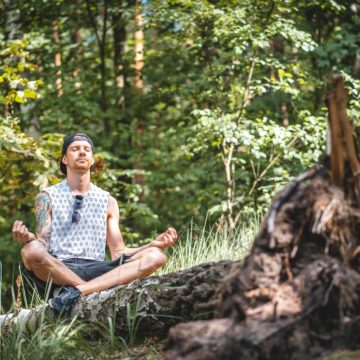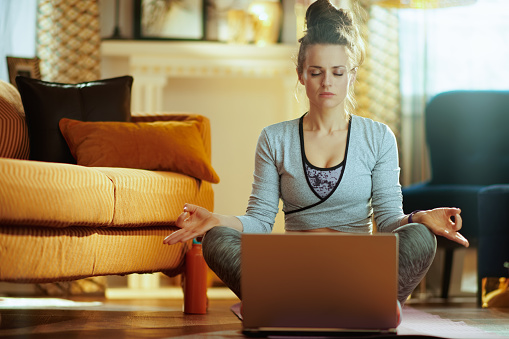
As we all know, there are very few habits as healthy and satisfying as meditation, especially when practiced daily or at least at regular intervals with consistency. Meditation is a great practice for people of all ages all over the world. If you are someone who has been introduced to meditation in the recent past and are finding it difficult to inculcate it into your daily or weekly schedule, here are some of the best meditation tips that will guide and see you through this initial phase of frustration and uneasiness. This is a new skill that you are trying to master and you need to give yourself some time. All good things take time and this is one of the finest among them.
Meditation improves your health, boosts your mood, and lifts your spirits all at once. However, certain other excuses might prevent you from meditating. You might just throw random reasons at yourself, reasons like “I’m not the kind who meditates”, “I’m way too busy to meditate” or “I just can’t stop thinking”, but that just dissuades you from achieving that extra amount of productivity that you are actually aiming at. It is of utmost importance that you get past these ideas and channelize all these negative energies into the very positive experience of meditation.
Table of Contents
10 Best Tips for Meditation
You must have received innumerable bits of advice throughout your life on how to meditate, what to do and what not to, nonetheless, you might still find yourself too lost and disoriented while actually sitting to meditate. Despite all big and strict advises, you may continue to face the difficulties that you always have. These are the easiest hacks to help you approach meditation in the simplest and most comfortable yet satisfying manner:
1. Embrace the process of meditation without expectations
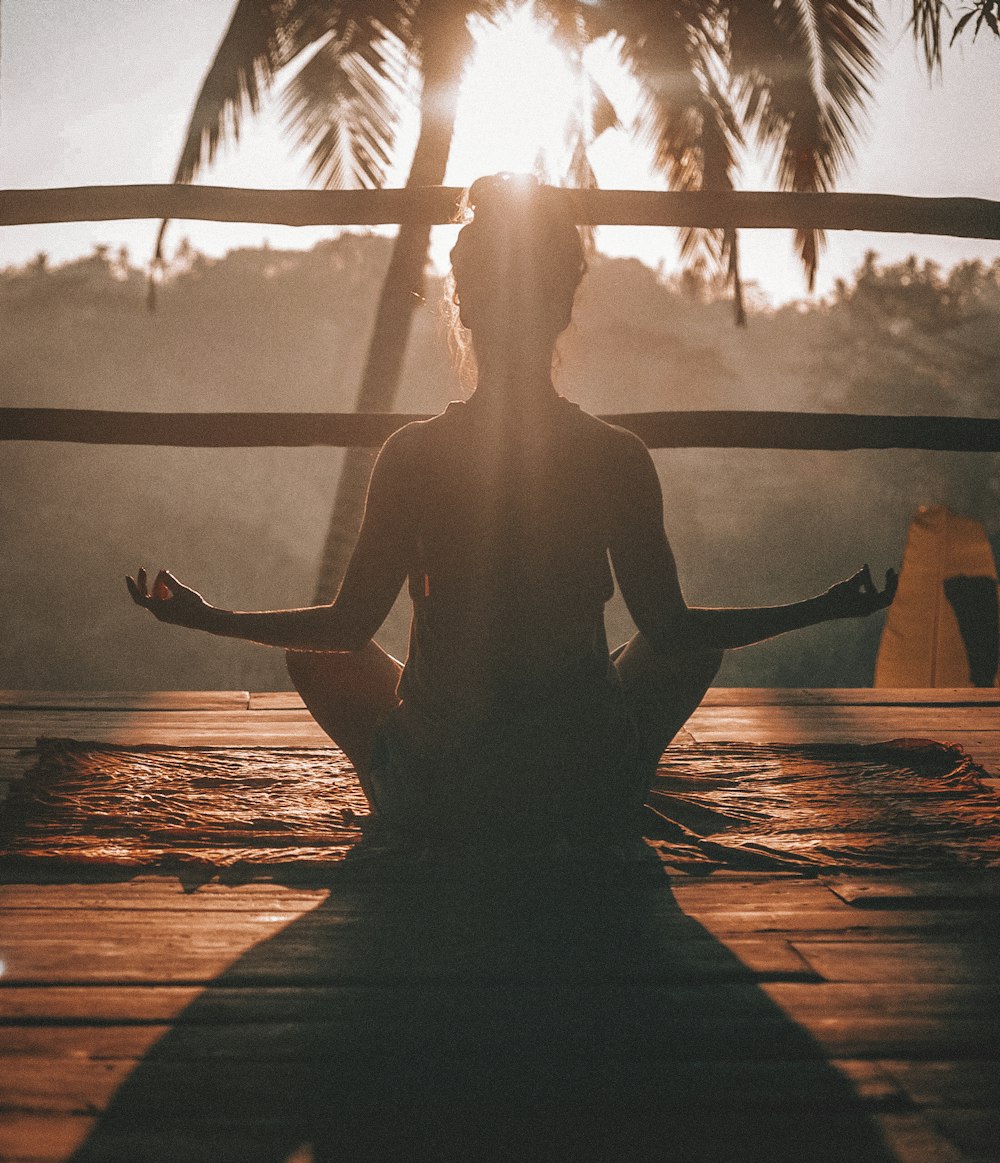
The first thing that you should keep in mind is that mediation might have magical results but meditation is not magic. Do not have unrealistic aims. Avoid setting predefined goals to be accomplished after completing your meditation such as becoming a better person or feeling a certain way. This would create unnecessary pressure on your mind. Rather, have patience and embrace the entire process without any expectations. This will retain the harmony in your body and mind. In the end, there is no substitute for dedication and sustained efforts.
2. Fix a slot for meditation

It is easier to get into a habit if you reserve a specific portion of the day for that particular purpose. Again, it’s a great idea to pair it up with an already existing habit. Suppose, you are a beginner and you are being able to concentrate for no longer than five minutes, choosing a time next to your daily workout schedule or after returning from work or after your journaling can help you grow meditation as a habit very quickly. The quicker you establish the habit, the faster you reap the benefits.
3. Have a designated space for meditation
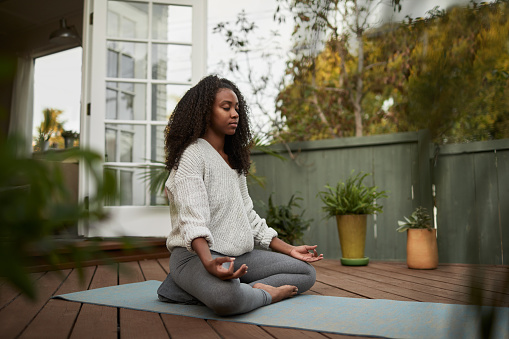
Choose a definite space for meditation at home and try to stick to it whenever you meditate. Having a particular space allows your body and mind to get comfortable and switch to the process of meditation quickly. It facilitates the entire process of detaching yourself from the worldly domain and engaging solely with your thoughts. Just like a home office space is necessary for improving focus while working from home, it is equally important to dedicate a corner of your home for meditating effectively. A wifi-free, plant-filled and aesthetically pleasing zone might be an excellent place for meditation, one that is ideal to induce tranquility.
4. Start your meditation with a few deep breaths
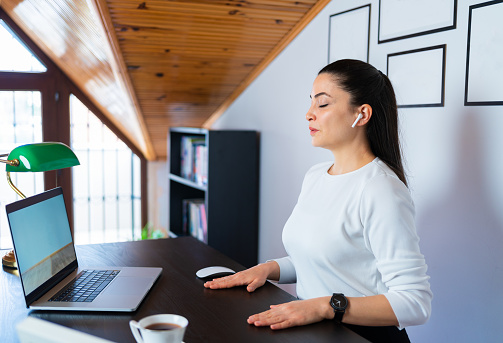
The start is very crucial. It determines how your body will feel during and after the meditation. When you start with a few deep breaths, your meditation usually triggers a relaxation which is the veritable contradictory to your nervous system’s flight response. When your body triggers the flight response, it prepares your body for danger or threats but when the relaxation response is aroused, your body starts feeling safe, secure and calm. Start the meditation after this and ensure your breathing returns to the normal rate. Attentive breathing is very important for a good and wholesome meditative experience. Mindful breathing can enhance the process of decreasing stress levels to a great extent.
5. Fidgeting and moving too much while meditating is a big no-no!
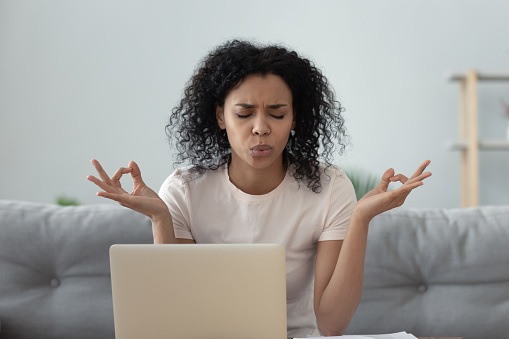
We all would admit at some point that there is this irresistible urge to succumb to restlessness and frustration while meditating. Two minutes into the process and you are suddenly reminded of something and you casually pause in between and maybe move around for some while and then again return to continue after 15 minutes perhaps. You also might want to change positions in the middle of the process. If the cause of distraction is something serious or your position is causing you pain, you might feel free to relocate or adjust yourself but try not to let your position become a potential distraction. That hinders the continuity and thereby, the impacts. If you are too uncomfortable to sit and meditate, the best meditation tip for you is to navigate through other meditation techniques which allow postures like lying down or walking.
6. All days are not the same! Set up a meditation schedule

A significant objective of any kind of meditation that you practice is to treat yourself with as much kindness as possible and allow yourself ample space, no matter what your present circumstances are.
As with workout or work, on some days you are filled with endless zeal to work or exercise more and on others, you are simply not. It could be your mental stress or financial worries or even lack of sleep; you won’t feel like meditating on certain days and it’s absolutely fine to feel that way. It’s a practice just like you practice music or dance and all days won’t be the same, all days won’t be easy and perfect and you should not feel guilty about them. Just stick to it and keep evolving!
7. Recognize your emotions

It’s as normal to feel low after meditating as it is to feel happy. Meditation involves confronting all sorts of emotions- happy and sad so that we can realize better what they actually are- thoughts and feelings that usually have a lifetime of moments, hours or a few days at the most. They come and go like we meet new people and part with them, inevitably.
If you feel pissed, take a moment to be grateful for the smallest things and appreciate yourself. If you find nothing else, just acknowledge your effort to meditate and even that goes a long way in infusing your body and mind with positive energy.
Try meditation journeys and other mindfulness journeys. Download the Evolve app today and understand your body and mind better.
How To Use Meditation To Overcome Grief
|
0 comments
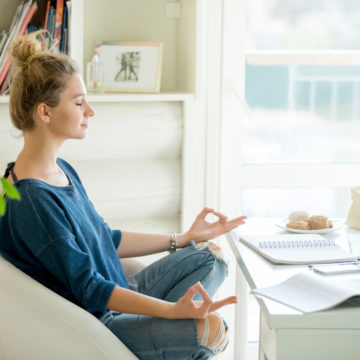
mindfulness
Guided Meditation vs Self-Guided Meditation
|
0 comments

mindfulness
The Difference Between React and Respond
|
0 comments

mindfulness
10 Stoic Principles Simplified for you!
|
0 comments
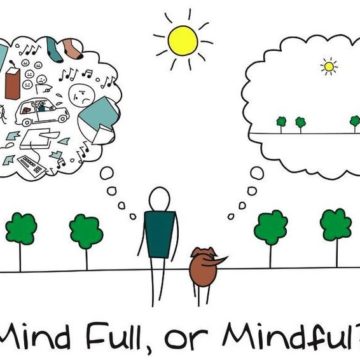
mindfulness
Simple Mindfulness Exercises-How To Make You More Peaceful
|
0 comments

Mental Health
7 Best Meditation Tips
Damayanti Dubey is a final year English major at Loreto College, Kolkata. She is a writer by passion and loves to indulge in languages, especially English, Bengali, and Urdu. She aims at exploring all of their intricacies and nuances. Damayanti is a disciple of Padma Bhushan Pandit Ajoy Chakraborty and is a national scholar of Indian classical music. She has always believed that a sound mind, free from the clutches of regressive and negative thoughts is the key to living a healthy life and makes efforts to promote mental wellness through the power of her words.
Damayanti believes in thinking beyond boundaries.
